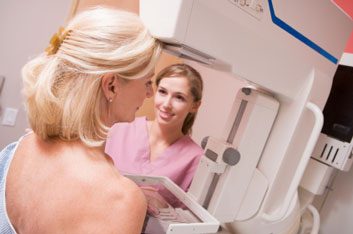News: Guidelines advise against mammograms for women in their 40s
New guidelines for breast cancer screening suggests routine mammogram tests are not of significant benefit for women aged 40 to

New guidelines for breast cancer screening suggests routine mammogram tests are not of significant benefit for women aged 40 to 49 with an average risk of breast cancer. Who’s at an average risk? According to the Canadian Task Force on Preventive Health Care, women at average risk have no previous breast cancer, no history of breast cancer in a first-degree relative such as a mother or sister, no known mutations in the BRCA gene and no previous exposure to radiation of the chest wall.
For women aged 50 to 69, CBC News reports that previous recommendations suggested a mammogram every two years, whereas that time between tests has now been expanded to every two to three years. The task force is also advising against self-exams at any age.
Breast cancer is a personal issue for me and I take issue with these new guidelines. Had they been in place seven years ago, my mother may not be alive today. At that time, she would have been in this average risk category, and yet she was 48 when she was diagnosed with breast cancer’discovered by a routine mammogram. If she and her doctor had followed these recommendations, she may not have had her first mammogram for another two years. And would it have mattered by that point?
So when the task force suggests the potential for harm from false positive diagnoses and unnecessary biopsies outweighs the possible benefit of a slight reduction in the number of deaths form the disease, I think it’s insulting to those affected by this disease. Deciding whether or not the cost outweighs the benefit should be a personal decision.
I bet if you asked the average woman, she’d be willing to undergo a biopsy, or other screening process, if there was a chance it could save her life.
As for myself, I’m now at a greater risk for developing breast cancer since I have a first-degree relative who’s had the disease. While I’m not yet at the age where I’ll need to begin regular screening, it’s still on my mind and I’d gladly go through the emotional strain of a false positive if there was a chance testing could catch the disease at an earlier stage.
What do you think of the new breast cancer screening recommendations?
Related:
‘ Breast Cancer
‘ Breast cancer: What you should know, and how you can help
‘ Yoga helps breast-cancer patients heal




